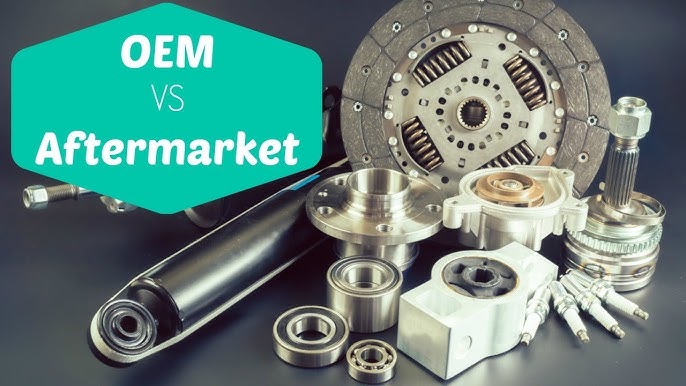5 Reasons OEM Parts Are Good, But Not Always Required
Whether you need to repair a motor vehicle or some type of equipment, you might first start searching for original factory parts, only to discover that they’re incredibly expensive. Your next option might be to look for OEM parts since they’re made by the original equipment manufacturer and are considered the gold standard next to factory parts.
While OEM parts can be amazing and are sometimes the best (or only) option, that’s not always the case.
Here are a handful of reasons to consider aftermarket parts.
1. Sometimes aftermarket parts can be better than OEM
When an aftermarket manufacturer decides to create a part, they typically reverse engineer OEM parts, which reveals the part’s strengths and weaknesses. This knowledge allows the company to produce a higher quality aftermarket part that can exceed the quality of the OEM part it was designed to replace. You essentially get a better part for less money.
For instance, there is an aftermarket Honda Accord key fob cover on Amazon made by a manufacturer that corrected a major design flaw in the OEM part. This Honda key fob replacement is just one example. If you ask around for whatever part you’re looking for in a niche community, someone will know if there’s an aftermarket part that outperforms the OEM part you need.
2. There’s little at stake
If there’s one common problem with aftermarket parts, it’s the fact that the original manufacturer knows their product better than anyone and has worked hard to create parts that fit like a glove. Often, when you buy an aftermarket part, it may not fit right and it could be a bit of a struggle to make it work. When you’re dealing with important car parts that need precision and are connected to safety, this isn’t acceptable. However, when there’s nothing at stake and the part is extremely easy to make, things are different.
While you wouldn’t want to buy an aftermarket muffler or brake components for your vehicle, less critical parts can save you a lot of money without posing any risk. In cases like these, it’s worth exploring trusted aftermarket suppliers—companies such as Berkshire Jag Components and others may offer reliable alternatives that balance cost and quality. These options can be especially useful for older vehicles or non-essential components where the priority is affordability rather than factory precision.
OEM parts have their place, but they’re still expensive compared to aftermarket parts. When there’s little to no risk in purchasing an aftermarket part, you have every reason to give it a chance.
3. Some aftermarket parts have a strong track record
While it’s true that you can get a greater quality assurance from OEM parts since they’re made to the manufacturer’s specifications, that doesn’t mean aftermarket parts won’t be just as reliable. Many aftermarket parts will vary in terms of quality, but some companies are doing everything right.
If you can find a business that makes aftermarket parts with a strong track record, that’s a good sign. They do exist, and usually are well known in their industry. For example, Bosch and Delphi are well known for making reliable aftermarket automotive components. Bosch is so good that they’re now getting parts certified by the Certified Automotive Parts Association (CAPA).
4. OEM parts can be overpriced
According to JD Power, OEM car parts cost around 60% more than aftermarket parts. If you need to save money and aren’t attached to having a perfect part, or the OEM look and feel, then go with the aftermarket part.
Part of the reason aftermarket parts are able to be priced so much lower is because they’re typically made to be more universal than OEM parts. For instance, an OEM part might only fit one model while an aftermarket part is made to fit a range of models. Since OEM parts aren’t as universal, they need to be priced higher to generate a profit.
5. Aftermarket parts are easier to get
Sometimes aftermarket parts are easier to get than OEM parts, and can be purchased from generic shops, like gas stations, mechanic shops, and general auto parts stores. If you need the part now, or there’s a part shortage, an aftermarket part might be a good choice, provided it’s not tied to safety.
OEM v. aftermarket parts is a personal choice
There are pros and cons to both OEM and aftermarket parts. In either case, do some research before making a purchase. If you need a replacement part for your vehicle, research is critical for your safety. However, if you just need a new laptop battery, research will save you time and money, but choosing the wrong part won’t cause any harm.
Ultimately, it’s a matter of personal preference, but there’s nothing wrong with using aftermarket parts.





